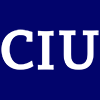Columbia International University is a private Christian university located in Columbia, South Carolina, USA. The following is a detailed introduction to the school:
School Overview
A long history: The school was founded in 1923 as Columbia Bible School, renamed Columbia Bible College in 1929, and changed to its current name in 1994.
Excellent location: The school is located in Columbia, the capital of South Carolina, which is the political, economic and cultural center of the state, providing students with a wealth of internship, employment and cultural experience opportunities.
Moderate size: In the fall of 2022, the school has a total of 1,001 undergraduates and 1,480 graduate students, with a total enrollment of 2,481 and a campus area of 400 acres.
Academic Strength
Rich majors: The school has five colleges, including the College of Arts and Sciences, the Cook School of Business, the School of Education, the School of Intercultural Studies, and the School of Theology and Counseling, offering 75 More than 100 bachelor's, master's and doctoral degree programs, covering business and management, education, health science and nursing, humanities and arts and communication, psychology, theology and other fields.
High teaching quality: In the 2024 U.S. News and World Report's Best Colleges Ranking, Columbia International University ranked 45th among Southern Regional Universities, 14th among Best Value Schools, 34th among Best Colleges for Veterans, and 5th among Best Performers in Social Mobility.
Strong faculty: The school's teacher-student ratio is 13:1, and 74% of the classes have less than 20 students, which enables students to receive more attention and guidance from teachers, which is conducive to personalized education and academic exchanges.
Focus on practical teaching: The school focuses on cultivating students' practical ability and comprehensive quality. Through internships, experimental courses, research projects, etc., students can apply theoretical knowledge to practice and improve their problem-solving ability and professional competitiveness.
Campus Life
Diverse Student Organizations: The school has more than 32 student organizations, including academic societies, cultural clubs, art performance groups, volunteer organizations, etc. Students can participate in them according to their interests and hobbies, expand interpersonal relationships, and enrich their extracurricular life.
Rich Sports Activities: The school's sports team is called the Rams, which is a member of the National Association of Intercollegiate Athletic Association (NAIA), mainly participating in the Appalachian Athletic Conference (AAC) competition, and is also a member of the National Christian College Athletic Association (NCCAA). The school offers a variety of men's and women's sports, such as baseball, basketball, football, volleyball, track and field, etc.
Complete Living Facilities: There are various types of student dormitories on campus, including female dormitories, male dormitories, married student apartments, single student apartments, etc., to meet the accommodation needs of different students. The school's cafeteria provides a variety of food options. In addition, there are living facilities such as the student activity center, library, gym, etc. to facilitate students' daily life.
Strong Religious Atmosphere: As a Christian university, the school has a strong religious atmosphere and requires all students to abide by doctrines and lifestyle standards, including prohibiting drinking and smoking. The school also has a church and holds religious activities regularly to provide students with spiritual sustenance and opportunities for growth.
Admission requirements and tuition
Admission requirements: The school's acceptance rate is 48%, and the application deadline is August 1. For undergraduate applicants, SAT scores are generally required to be between 990-1195 and ACT scores are between 16-25.
Tuition: In 2023-2024, tuition and fees are $27,900, and room and board are $11,950. The school provides students with a variety of financial aid methods, and the average amount of need-based aid packages is $18,939.
-

Harvard University
-

Massachusetts Institute of Technology
-

South University
-

University of West Georgia
-

Stanford University
-

Northwest Nazarene University
-

Hawaii Pacific University
-

Shorter University
-

Nova Southeastern University
-

Saint Leo University
-

Mesoamerican University
-

Istmo University
-

Mariano Galvez University of Guatemala
-

Regional University of Guatemala
-

Galileo University
-

Francisco Marroquín University
-

Rafael Landívar University
-

University of the Valley of Guatemala
-

University of San Carlos of Guatemala
-

Technological Institute of Tlaxcala Plateau
-

Golfo University
-

Technological University of South Sonora
-

Technological University of Huejotzingo
-

Tizimín Institute of Technology
-

Chilpancingo Institute of Technology

